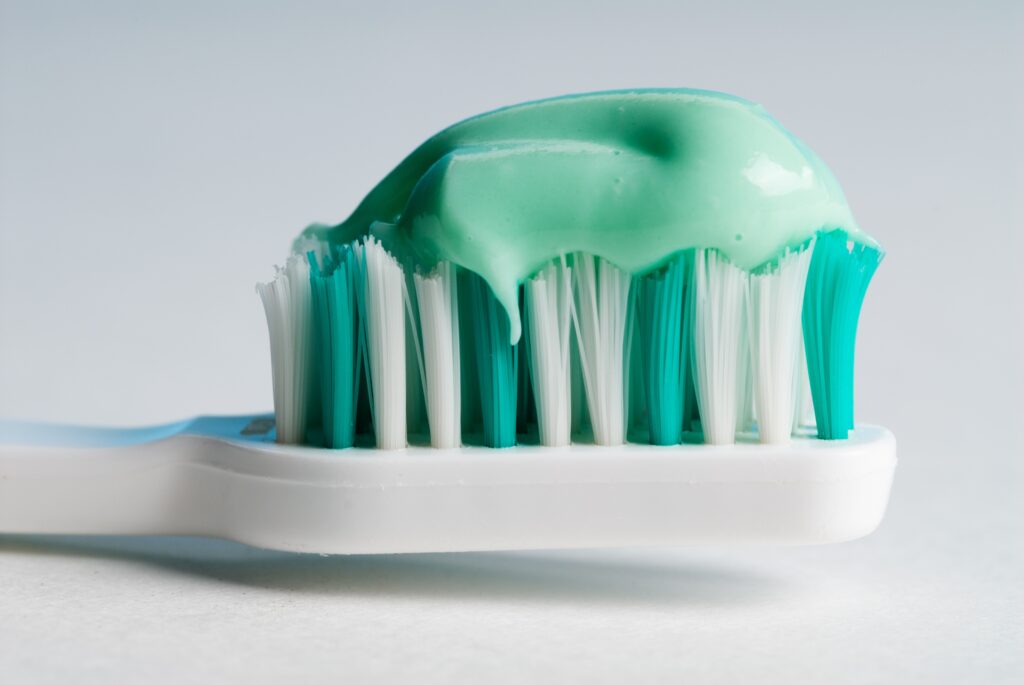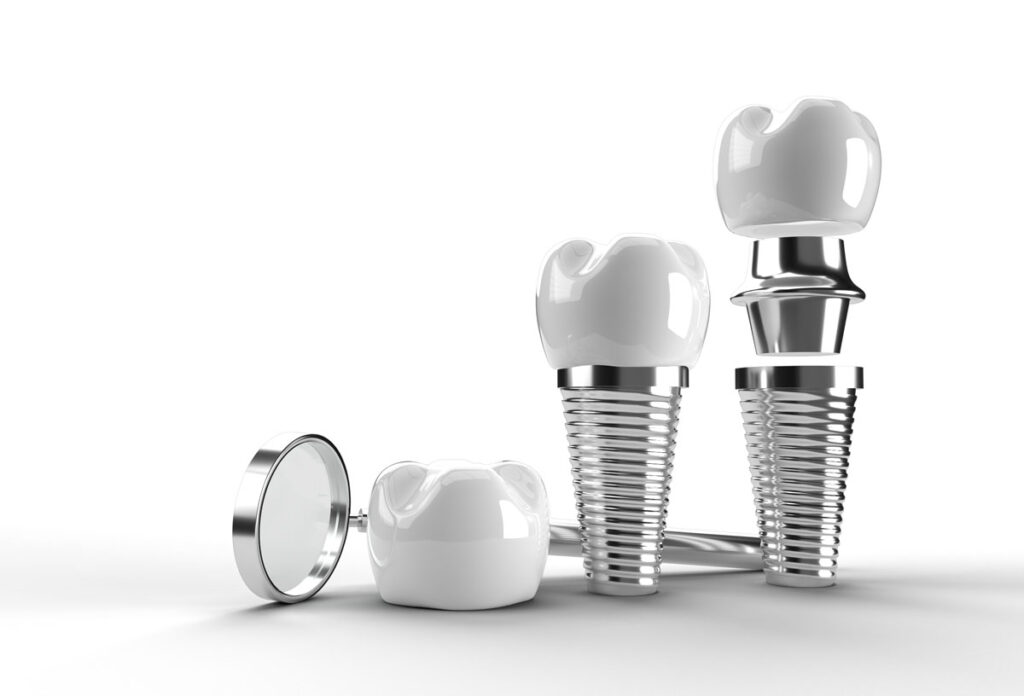Quick Answer: How Much do Dental Implants Cost?
Dental implants can cost anywhere between $1,600 and $8,200 per single tooth without dental insurance. The cost of dental implants can vary depending on many different variables such as the tooth location, the number of implants, the dental practice you choose, and other factors. In many cases, dental insurance plans do not cover dental implants as it is considered cosmetic.
Did you know that 3 million Americans have dental implants, and that number grows by nearly 500,000 every year? Regarded as one of the safest and most predictable dental procedures, dental implants are fast becoming the treatment of choice for missing teeth lost to infection, injury, or decay. Regaining confidence in your smile is possible when you choose dental implant surgery.
Finding dental insurance that covers dental implants can be challenging as this type of procedure is classified as cosmetic dentistry. The majority of dental insurance plans do not cover cosmetic procedures, which means you’d pay completely out of pocket—but that’s not always the case. While you may be hard-pressed to find dental implant insurance, other options—like dental savings plans for implants—can make footing the bill a bit easier.
Below, learn more about dental implants, the costs associated with the procedure, how to know if you have dental insurance that covers implants, and alternative dental plans to consider if your insurance does not.
- What Are Dental Implants?
- How Much Are Dental Implants Without Dental Insurance?
- How to Know if Your Dental Insurance Covers Dental Implants
- What to Know About Dental Insurance That Covers Implants
- No Insurance? Ways to Save on Dental Implants
- Dental Plans That Cover Implants
What Are Dental Implants?
Dental implants are artificial tooth root replacements that are placed into the bone of either the jaw or the upper mouth and function as a sturdy base for supporting crowns, bridges, or dentures. Modern dental implants have been used in dentistry for over 30 years and are the strongest, healthiest, and most natural option for replacing missing teeth.
How Much Are Dental Implants Without Dental Insurance?
Dental implants can cost anywhere between $1,600 and $8,200 per tooth without dental insurance. The cost of dental implants ultimately depends on many different variables such as the tooth location, the number of teeth, the dental practice you choose, and other factors.
Because most dental insurance plans do not cover this cosmetic procedure, we are unable to give an estimated cost of how much a dental implant is with insurance. Keep in mind that some dental insurance plans may pay for part of the procedure, like the necessary tooth extractions or crowns that typically accompany the dental implant procedure, even if they do not help with the implant itself.
|
For more information on pricing rates, see 1Dental’s Average Sample Savings for the Preferred Plan, which includes average pricing of treatments without dental insurance.
|
How to Know if Your Dental Insurance Covers Dental Implants
Here’s how:
- Check your existing dental coverage
- Understand what you’ll pay out-of-pocket
- Find your annual maximum and where you are in the year
- Investigate the reimbursement option on your current plan
- Call your insurance provider with any questions
- Talk to your dentist for recommended plans that cover dental implants
For further detail:
Check Your Existing Dental Insurance Coverage. While it may be difficult to understand your dental insurance, it’s important to thoroughly check your existing coverage to see if it includes dental implants. If it does not include implant savings, then you may want to search online for a plan that might cover the procedure.
Understand What You’ll Pay Out-of-Pocket. Bear in mind, however, that you cannot avoid out-of-pocket expenses entirely when considering dental implant treatments, especially for what is typically considered cosmetic dental work.
Find Your Annual Maximum and Where You Are in the Year. Investigate your existing policy to see if you already hit your annual maximum, which is the most amount of money your policy will pay per year. Otherwise, you might be responsible for the full cost of the treatment out-of-pocket.
Investigate the Reimbursement Option on Your Existing Plan. You may also want to investigate the reimbursement option on your existing plan. Understand how the process works with your particular insurance company, and use it wisely.
Call Your Dental Insurance Provider with Any Questions. If you have any difficulty sifting through these terms and conditions, consider calling your provider and a few others to clarify your questions and compare coverage options.
Talk to Your Dentist for Recommended Dental Plans for Implants. Your dentist may also be a helpful resource as well for recommending plans that will cover implants. If you are unable to determine if your current policy covers the procedure, your dentist may know this as well.
What to Know About Dental Insurance That Covers Implants
If your current policy offers dental implant insurance, it may have hidden exclusions or exceptions. Still, an “exclusion” clause for implants does not necessarily mean that absolutely zero benefits will apply to the procedure.
Quick Tip: Classify your implant procedure as a “restoration” rather than “surgical therapy,” because some insurance companies will only reimburse you for “restoration” procedures.
Look at your current plan and examine its alternate benefit clause. Always double-check that you are referring to the procedure you need by its correct ADA code because the smallest differences between procedures could mean the difference between any coverage for your implants and full payment out of your own pocket.
No Insurance? Ways to Save on Dental Implants

If your dental insurance won’t cover implants or you simply don’t have dental implant insurance, you’re not out of luck! There are a couple of viable avenues you can pursue to comfortably afford your desired dental implant surgery:
Schools of Dentistry
Heading over to a dentistry school for a procedure is one of the best-kept secrets in the industry. These programs are home to recent dentistry school graduate students looking to gain more hands-on experience by treating patients at a low cost. You can expect the same level of expertise and care all at a fraction of the usual price.
It is worth noting that some schools of dentistry only offer procedures to low-income individuals and often don’t accept dental plans. Make sure to do your research before setting up an appointment.
Dental Savings Plans
If you still cannot find a way to receive benefits for your implant surgery, you may want to look into the affordable alternative of dental savings plans. Often for specialty procedures such as implants, you can receive a contracted percentage off of your preferred treatment with these dental plans, without deductibles or maximums. Whichever type of dental plan for implants you need, you can find multiple insurance alternatives online.
Dental Plans That Cover Implants
If you’re scratching your head wondering how you’ll be able to pay for the dental work you need to complete your smile, 1Dental’s dental savings plans can help. These plans are specifically designed to save you money on high dental implant costs. Unlike dental insurance you can reap the benefits of no deductible, co-pays, or long waiting periods while gaining the peace of mind you deserve in pursuing your best oral hygiene.
Top 1Dental Plan for Implants
1Dental’s Preferred Dental Plan can help you save money on a variety of procedures, including implants. It combines the Dental Access Plan (powered by the Aetna Dental Access network) and the Careington Care 500 dental plan. Dental Access is known for a larger provider network and typically better savings with specialists such as oral surgeons that perform implant surgery. The Care 500 plan offers the best savings when seeing a general dentist, but also provides savings at specialists.
Resources
Dayodental.com | Prosthodontics.com | blog.medstarwashington.org
This content is not intended to be a substitute for professional dental advice, diagnosis, or treatment. Always seek the advice of your dentist with any questions you may have regarding your oral health.







Very comprehensive list. An educated patient is the best patient especially when it comes to their own individual insurance benefits.